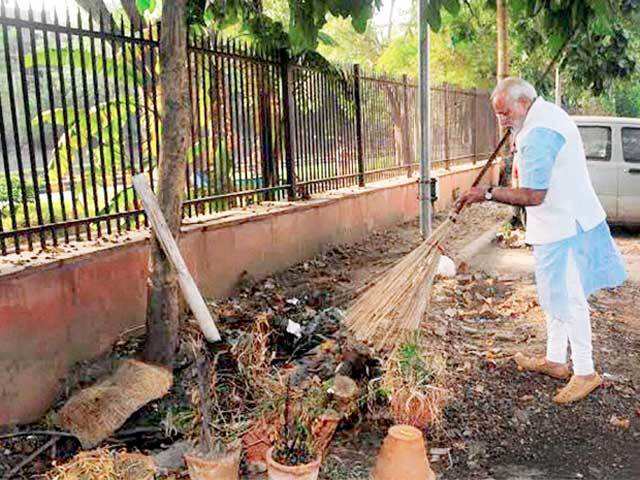What makes this campaign significant is the constant reference to cleanliness that the Prime Minister has reinforced in his speeches.
Much of the criticism of the Swachh Bharat Mission has been that it fails to tackle the issue of sewerage, or as The Wire called it a failed attempt to create an equally sanitary India have missed the important point that the mission aims at. Like all schemes that sometimes have initial problems with implementation, creating awareness among people about its use and benefits and changing how they view open defecation, the sheer thought of coming up with the nation-wide toilet construction program is a positive step. Sitting in homes equipped with toilets with the finest accessories is a privilege and commenting on the mission and its failures reeks of elitism and the collective failure to understand the real problems of urban and rural India. The most important aspect is that Prime Minister Narendra Modi envisioned a campaign which is a basic human right and necessity which many of us take for granted. Ironically, those who criticize the campaign have failed to acknowledge the fact that the Swachhata or cleanliness was the dream of Mahatma Gandhi which was completely ignored by subsequent regimes in Independent India including that of the Congress Party. It was only Prime Minister Narendra Modi who picked up the issue and strongly reinforced the point that cleanliness is a basic human right and thus non-negotiable.
No leader in Independent India envisioned that a toilet building exercise must be carried out throughout the country, and if they did it was never carried out at a government level. What makes this campaign significant is the constant reference to cleanliness that the Prime Minister has reinforced in his speeches made from different platforms. In 1947, five-year plans were hailed as the builders of modern India despite that the fact that five-year plans were wanting on every aspect and failed to meet their targets every five-year due to problems with implementation. There were many economic failures and social costs incurred by generations due to these plans but a discussion of these failures has been wanting. Can we then view Swachh Bharat Mission through the same prism? No. Cleanliness and the subsequent building and usage of toilets requires an undoing of thousands of years of concept of “pollution”. It is a gigantic task, wherein the government has allowed us to bring the question of open defecation, cleanliness into an issue which requires a national discussion, not just a peripheral one.
Cleanliness and defecating in private should not be taken for granted as it is a basic human necessity. Women and children are the worst sufferers of open defecation since they had to undergo daily humiliation in rural and urban areas as their very act of defecation in public open spaces denied them the privacy they deserved. Some people have argued that despite the fact that toilets have been constructed, not many people are using them, it is significant to understand the basis of such claims and how can they be verified. Secondly, they fail to recognize the fact that Swachh Bharat Mission is not simply about constructing toilets and handing them out to beneficiaries but it requires a humungous mass awareness campaign which the government has been doing through grass-roots workers.
The Prime Minister has been constantly reinforcing the point that open defecation is dangerous, and that it exposes people to disease. This campaign and its success are not a day’s task; it requires constant reinforcement and efforts of civil society members like us. The mission is an effort to fight caste-based bias, which has been another cause of open defecation and access of the masses to toilets. Many toilets have been built in schools, in many cases separate toilets have been built for girls. To constantly question the commitment of the government to cleanliness, in spite of the very many social and economic challenges, without taking into account these factors, does not represent a real view of the problem. Swachhata or cleanliness is not a political problem and hence must not be seen from a political prism. It must be viewed as a real social problem and the only way we can eradicate open defecation is by creating awareness at the societal level, tackling the problem rather than mindless criticism which does not address the issue.
There is no denying the fact that the central and state governments have taken the Swachh Bharat Mission seriously, precisely due to the personal commitment of Prime Minister Narendra Modi, its success depends on collective efforts of society at large. The beneficiaries of the toilet construction exercise have been accorded respect and dignity, that is in itself no mean feat.
Kartikeya Sharma is MP, Rajya Sabha.
